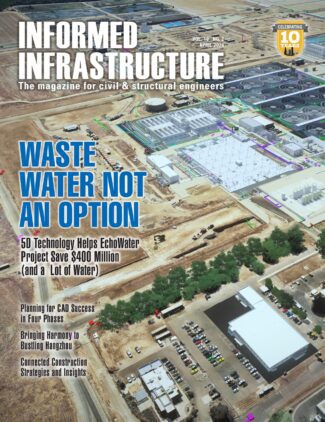SPRINGFIELD, Virginia ”Today, the National Geospatial-Intelligence Agency launched MagQuest, a $1.2 million global open innovation challenge. NGA calls upon solvers to submit novel approaches to geomagnetic data collection for the World Magnetic Model.
Earth is a large magnet, and both digital and analog compasses are oriented by the magnetic force at a user's location. Since geographic and magnetic poles do not align, geomagnetic models like the WMM correct for this difference. As the Earth's magnetic field is constantly changing, the difference between geographic and magnetic north also changes, and the WMM must be regularly updated.
The WMM is embedded in thousands of systems, including more than a billion smartphones for mobile navigation apps. The WMM is also critical for military and commercial uses around the world. Among other applications, it supports navigation and attitude determination for submarines, satellites, and aircraft, while also informing operational logistics like the numbering of runways. Beyond navigation, the WMM ensures precise orientation that supports applications in industries as diverse as energy and telecommunications.
The WMM is a joint product of NGA and the United Kingdom's Defence Geographic Centre. It is produced by the National Oceanic and Atmospheric Administration and the British Geological Survey at five-year intervals to account for the evolution of the magnetic field structure. Recent erratic movement of the north magnetic pole led to the release of an out-of-cycle update to the WMM in early 2019. Production of the WMM currently uses space-based magnetic field measurements that the European Space Agency Swarm mission has provided since 2013. To ensure sustainability of the WMM, the U.S. government is taking a proactive approach to identifying new methods of data collection independent of Swarm.
Anyone who uses GPS relies on the World Magnetic Model, said Richard Salman, Director of NGA's Office of Geomatics. MagQuest is a critical component of NGA's work to develop a new system for measuring Earth’s geomagnetic field to power the future of navigation.
MagQuest is designed to attract new ideas to increase the efficiency, reliability, and sustainability of geomagnetic data collection. With this challenge, NGA aims to inspire solvers to apply their expertise to spaceborne, aerial, terrestrial, and other potential solution areas. Solvers from small businesses, academic institutions, labs, startups, and other organizations are encouraged to enter the competition.
MagQuest is open to domestic and international participants, as defined in the Rules, Terms, and Conditions. Those interested in participating should submit their concepts by 4:59 p.m. EDT, May 16, 2019. Up to 10 Phase 1 winners will be selected by the independent judging panel according to the Phase 1 selection criteria. The total Phase 1 prize pool of $200,000 will be distributed evenly across Phase 1 winners.
Phase 2 will be open to solvers from Phase 1, as well as new solvers who did not participate in the first phase of the challenge. NGA will seek detailed designs and plans for data collection methodologies, including descriptions, 3D models, and hypotheses for prototype development and testing. Up to five winners will be selected by the independent judging panel according to the Phase 2 selection criteria. The total Phase 2 prize pool of $1 million will be distributed across Phase 2 winners.
At NGA's discretion, additional phases of the challenge may follow Phase 2. These phases, if executed, are anticipated to award an additional $2.5 million in cash prizes plus potential non-monetary incentives.
For more information about MagQuest, visit MagQuest.com.
NGA is working with NASA's Center of Excellence for Collaborative Innovation and Luminary Labs to produce MagQuest.

